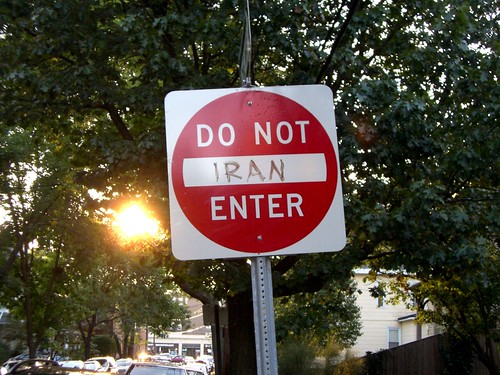I should begin by stating emphatically that I am not a pacifist by any understanding of the word. Although I agree that the Lord calls us to turn the other cheek in our personal dealings and not to repay evil for evil, nowhere is it stated clearer in the Word of God that there is a time for war. The Westminster Confession speaks to this issue clearly, as well: '[S]o, for that end, [the Christian magistrate] may lawfully, now under the New Testament, wage war, upon just and necessary occasion' (WCF 23.2). Yet again, the Divines' position is in accordance with Scripture, as evidenced by the Messiah's interaction with the Roman centurion. As one can imagine, this then raises the question: What is meant by 'just and necessary occasion'?
The historical Christian understanding of the Biblical position was delineated by Augustine in The City of God. In that work, Augustine argued that absolute pacifism is not mandated in the Word of God; still, there are certain prerequisites which must be met in order to justify waging war upon another: 1) it must be defensive, declared and carried out by the proper authority, 2) waged as a last resort, 3) proportionate to the threat, and 4) discriminate between combatants and non-combatants.
It is my deeply held view that the current war in Iraq has met none of these criteria (in varying degrees). Iraq had not attacked us (in fact, Saddam was in no position to do so even had it been his intention), there was no imperative to do so, it is obvious that we used a great deal more power than necessary to meet even the purported 'threat', and there have been innumerable instances of failures to discriminate between combatants and non-combatants (admittedly, not all of them deliberate). The last has, sadly, been the most-oft broken of the parameters for Just War. Sherman's March to the Sea inaugurated the practise which was continued as a matter of course. The firebombings of Dresden and Tokyo were horrific enough even without the vaporising of thousands of women, children, and elderly in Hiroshima and Nagasaki. How would you feel if your wife or children were considered 'collateral damage'?
Why do I raise such a tinderbox issue? Is it because I hate America? Of course not! But, as a Christian, I think it is my duty to speak the truth in love when I feel we are going astray. What concerns me even more than the government's application of unjust military action is that a significant portion of the Church (apparently) unabashedly supports that action. We are called to be peacemakers; yet, what I hear increasingly echoing from the halls of our places of worship is the beating of the war drums.
At the Faith2Action 'Values Voters Debate' in South Florida Monday night, only ONE Christian candidate for President of the U.S. stood against the war as unjust--Ron Paul. When he stated his opposition and invoked the name of Jesus--as the Prince of Peace--he was soundly booed by the admittedly evangelical audience! Governor Mike Huckabee of Arkansas--a Baptist minister, no less--openly calls for NUKING Iran! (How exactly does one distinguish between combatants and women and children in such an action, sir?) The sponsor of the event chided Dr Paul for 'cherrypicking' the peace passages out of Scripture! The bloodlust rampant among many in the Church is horrifying to me.
Let me be clear, I know that not every Christian supports the war and I am also not accusing anyone specifically of seeking the deaths of innocent people. There are many well-meaning Christians who feel just as deeply that the war is just as I do that it is not. I am speaking in generalities merely for the sake of brevity and to form a clear and concise argument. I hope that no one feels personally insulted or attacked, that certainly is not my intention.
Again, I am not advocating that we allow ourselves to be attacked with impunity; turning the other cheek does not require that we do not protect ourselves or the weak and innocent. I would just urge Christians to search the Scriptures for guidance as to when and how we should take such serious action as making war. The Bible tells us there is a time for war. And a time for peace.
------------------------------------------
And so it appears that wine snobs are full of cheese (as it were).
‘[The] criteria for a just war do not match what we have been doing in Iraq. Nor are they in harmony with the concept of a preemptive nuclear war against Iran. Yet the Republican presidential candidates who support the concept of preemptive nuclear war also claim to be Christians and men of faith. How can that be? Have they studied Christian just-war theory? Are they even familiar with it? Ron Paul made a very astute observation when he commented: “I have been reading from a different Bible."’” ~ Gary Benoit
Here are 25 skills every man should know. (I've only got about 12 or 13 under my belt.)
Jeffrey Tucker eulogises his father: ‘On occasion I've visited the church I grew up in. No one there today remembers my Father. But they are still singing the songs he wrote.’
'In short, Ron Paul is the only Republican whose positions on the two primary issues are different than Hillary Clinton's stance on them, and, more importantly, are more credible and more popular than Hillary Clinton's. He is the only Republican whose nomination can realistically be considered a potential impediment to what otherwise looks like a Democratic landslide.'
As Christians, we should be ever mindful of how and where we spend our money. This list, in alphabetical order, consists of companies scoring a perfect 100 percent on the Human Rights Campaign's 2008 Corporate Equality Index, with policies beneficial toward homosexuals.
My youngest son came home to-day
His friends marched with him all the way
The pipes and drums beat all the time
As in his box of polished pine
Like dead meat on a butcher's tray
My youngest son came home to-day.
And this time he is home to stay...
~ Eric Bogle, My Youngest Son Came Home To-day
The Episcopal Church has fallen and it can't get up.
‘I tried to walk a fine line between acting lawfully and testifying falsely but I now recognize that I did not fully accomplish that goal.’ ~ Former President Bill Clinton







9 comments:
Two minor nitpicks and a host of agreement.
Nitpicks: begging the question is a logical fallacy. It means the conclusion is a simple reiteration of the premise(s). What most people really intend to say is that something "raises the question" or "calls for a subsequent question," etc. The other nitpick is that I've never heard of a "tenderbox," but I have heard of a tinderbox. Perhaps you could enlighten me?
As for war and just war, I couldn't agree more with you regarding Iraq or the current state of affairs for the "Evangelical right." There is no "fun" in Fundamentalism writ large, but I suspect it is more "mental" (i.e. off its rocker) than it is "fundamental."
Our present inclinations are resembling the crusades against the Islamic Moors more and more it seems. Not a good thing.
Ron needs to put you in his cabinet if he wins (which he won't, so get ready to sit out the election). You crack me up about you enthusiasm for his candidacy, less of this bunk and more Monergism!
I'll badger you tomorrow at lunch.
I'll admit it, I didn't even read most of this blog. But, I did read the part about what ever man needs to know, and I'm pleased to report that I knew how to do five things! Not bad, since I'm a girl. :-)
Oh, and I'm guessing your 12 to 13 didn't include #15 - getting a car unstuck. Gotta love your neighbors!
Matt, you comments about the war were very well-said. Because I'm in agreement with you, that's probably easy for me to say. Still, I'm quite sure that I would not have written so clearly, yet so fairly.
P.S. - Vote Ron Paul.
P.S.S. (or is it P.P.S.) - I could do 13 of those. Since that's over half, does that mean I'm at least half a man, but not much more?! Does mixing concrete involve more than, well, mixing?
Joshua: On point 1, I stand guilty as charged. I have never actually been able to understand the definition of 'Begging the question.' (But I am down with the Straw Man!)
Point 2: ditto. I have a tindinsy two spell thangs fonetikly sumtymes win eye tipe. It iz vary annoi-ying.
Kierstyn: I would chastise you for being a wiseacre--but that would be like the pot throwing a stone at the log in someone else's eye.
Brandon: I'd rather fail on principle that be a fair weather voter. Besides, I never trust a guy with a beard!
Brian: I don't know whether you are more than half a man. However, by your own admition, I do know that you are 1/4 Korean, brother.
Ashlee and I just watched six weeks' worth of 'The Office' on DVD. I'm tired and going to bed.
BTHOM!!
Good comments on the war. A question: what does the WMC mean by "Christian magistrate"? I guess it is at least a little clear how Christians who are in charge of a country should proceed with war, but what is the proper response of Christian's living in a country? Should they obey the call to arms only in a clear cut just war or should they disobey their country only when it is appearant that the war is unjust. Where is the middle ground?
I got 15 on the list down with about 4 more that I might be able to do in a jamb. I feel pretty macho at the moment...that didn't last long.
Brian-Mixing concrete requires a basic understanding of proportions which I guess is what mixing is.
Jacob: In that instance, the Confession is speaking to the belief that Christians may lawfully serve in government. It also asserts that a magistrate NOT being a Christian does not free us from obeying LAWFUL orders. We are to obey the magistrate, whether Christian or reprobate, unless his dictates violate God's laws.
So, to answer your question, we should not follow orders to fight in an unjust war. That being said, we should also expect to suffer the consequences of our actions. Most often, that will mean jail time; other times, it may mean much more (if you catch my drift). Obeying God often comes with an earthly cost.
Chapter 23 of the Westminster Confession (it is available online at www.reformed.org) elucidates this topic quite well.
I guess I should have been clearer. What if the war falls somewhere between unjust and just? Like you said, most wars are complicated things with a great many viewpoints.
I think at that point we just have to pray, seeks God's counsel, and use our God-given discernment. All things being equal, I would hope to err on the side of caution and not wage war if we are not sure of its legitimacy. (If the 'other side' attacked us in our reluctance--there would be our answer!)
Post a Comment